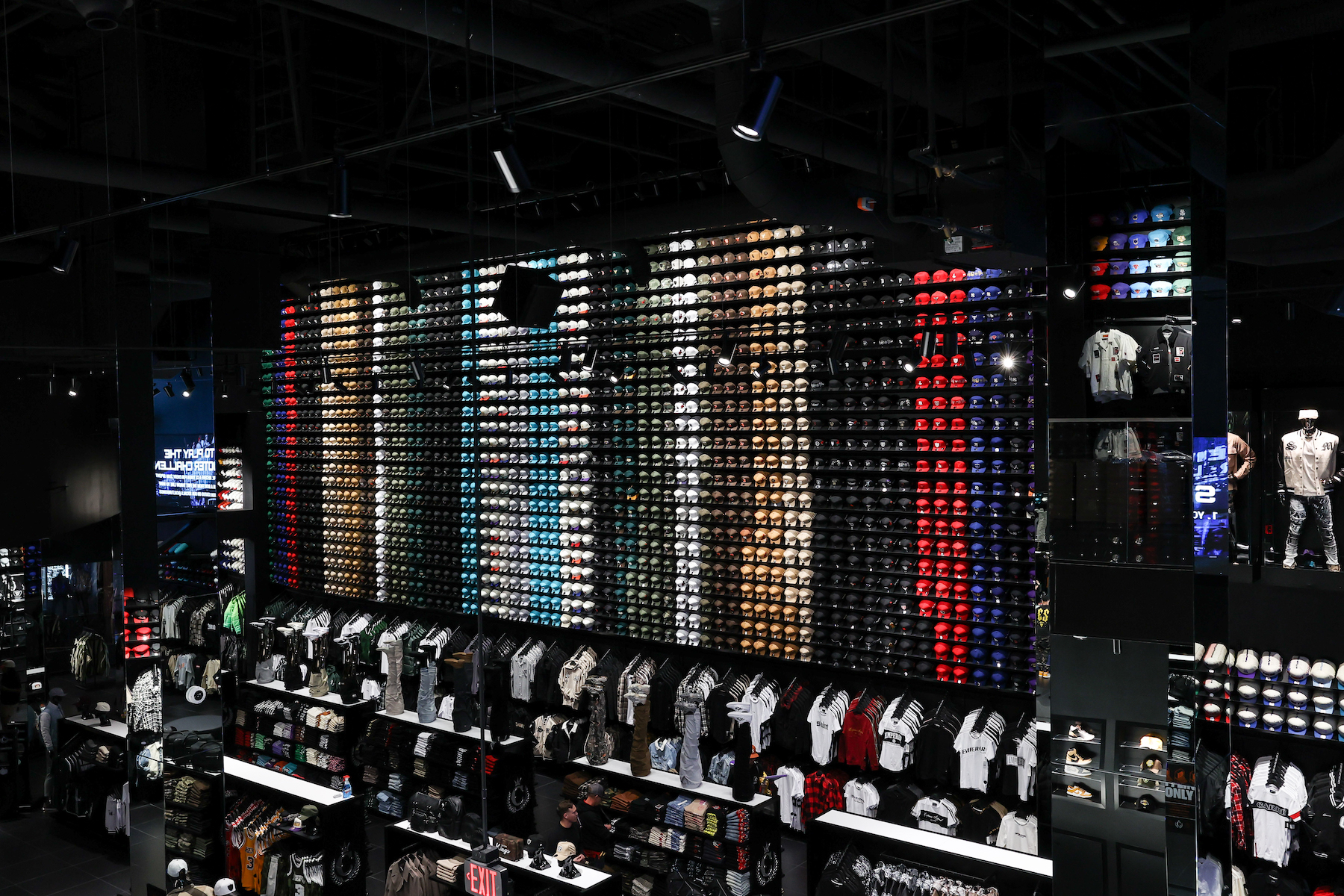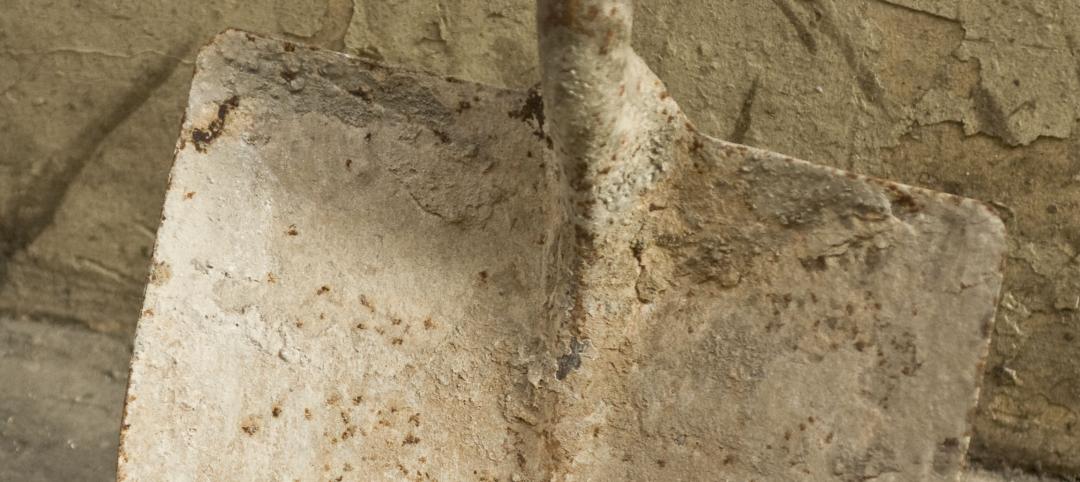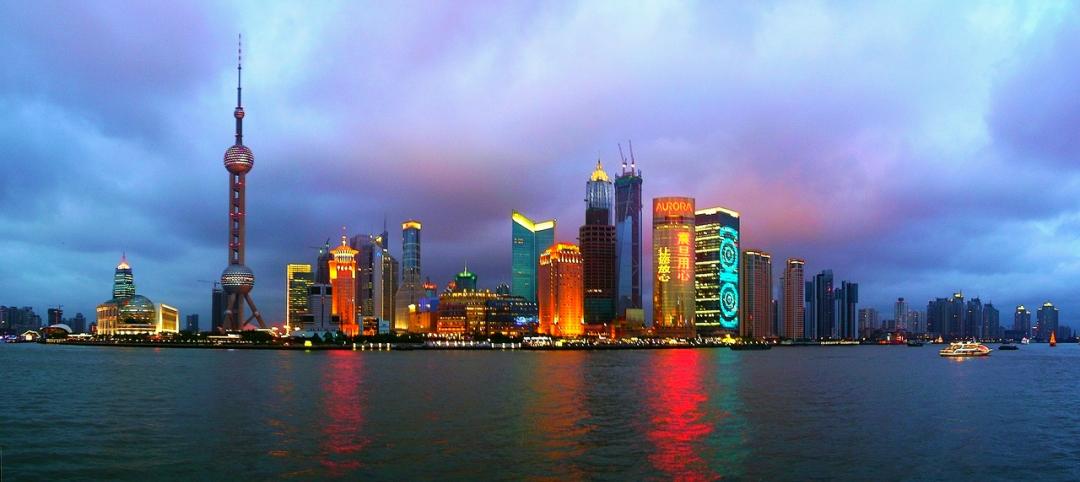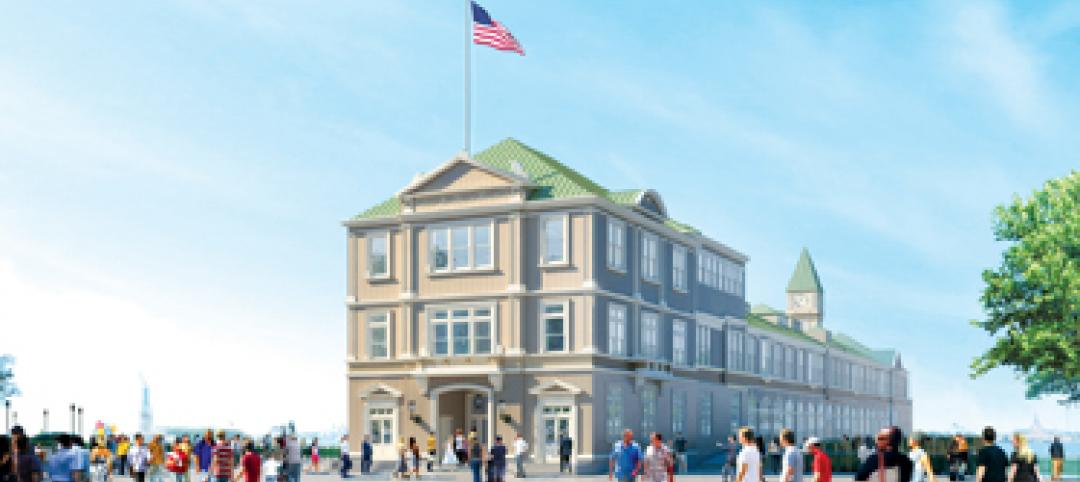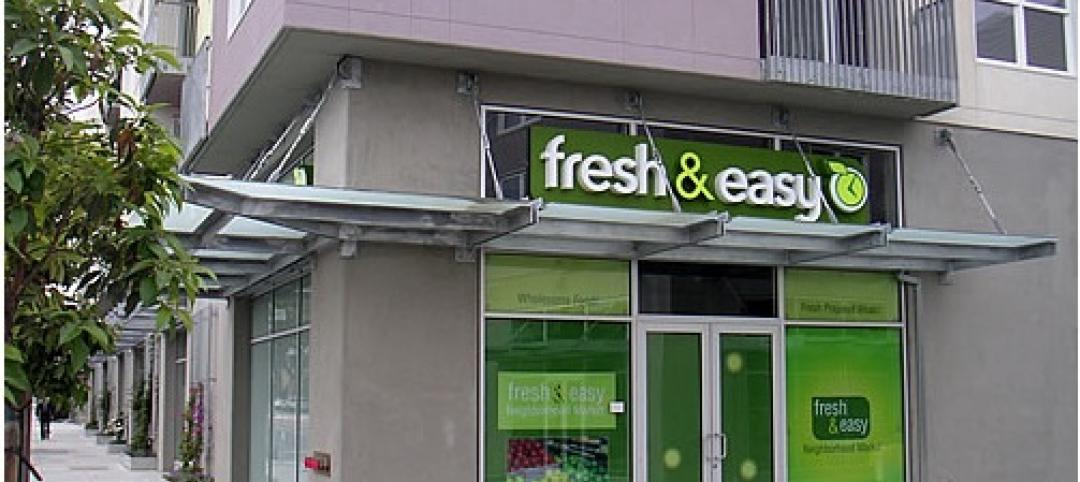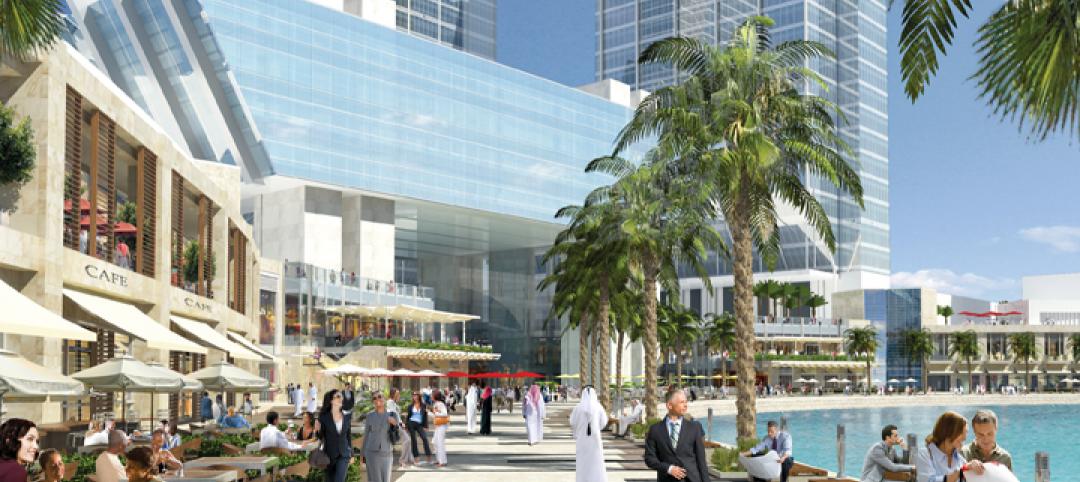Shawmut Design and Construction has been active in the Las Vegas market for nearly 15 years. And it’s safe to say, during that stretch, that Shawmut hadn’t built a retail store whose merchandise assortment includes 11,000 hats, and whose amenities include a state-of-the-art recording studio.
Those are two features of Culture Kings, the renowned streetwear brand based in Brisbane, Australia, which in early November opened its U.S. flagship store at The Forum Shops at Caesars in Las Vegas. Shawmut worked with bokor architecture + interiors (the design architect for Culture Kings’ stores in Australia and New Zealand) and Vegas-based Bunnyfish Studios (the AOR on the project) to create the two-story immersive space that had previously been occupied by four tenants, including an art gallery.
Culture Kings’ stores Down Under, as well as its wider online presence, have popularized the brand among celebrities in the sports, fashion, music, and entertainment worlds. DJs perform daily in each of its stores, whose luxury space, known as “The Vault,” displays the latest in men’s and women’s jewelry, watches, and other accessories. The stores offer over 100 leading brands and 2,000-plus styles of apparel and footwear, including 18 proprietary brands.
U.S. store adds some flourishes
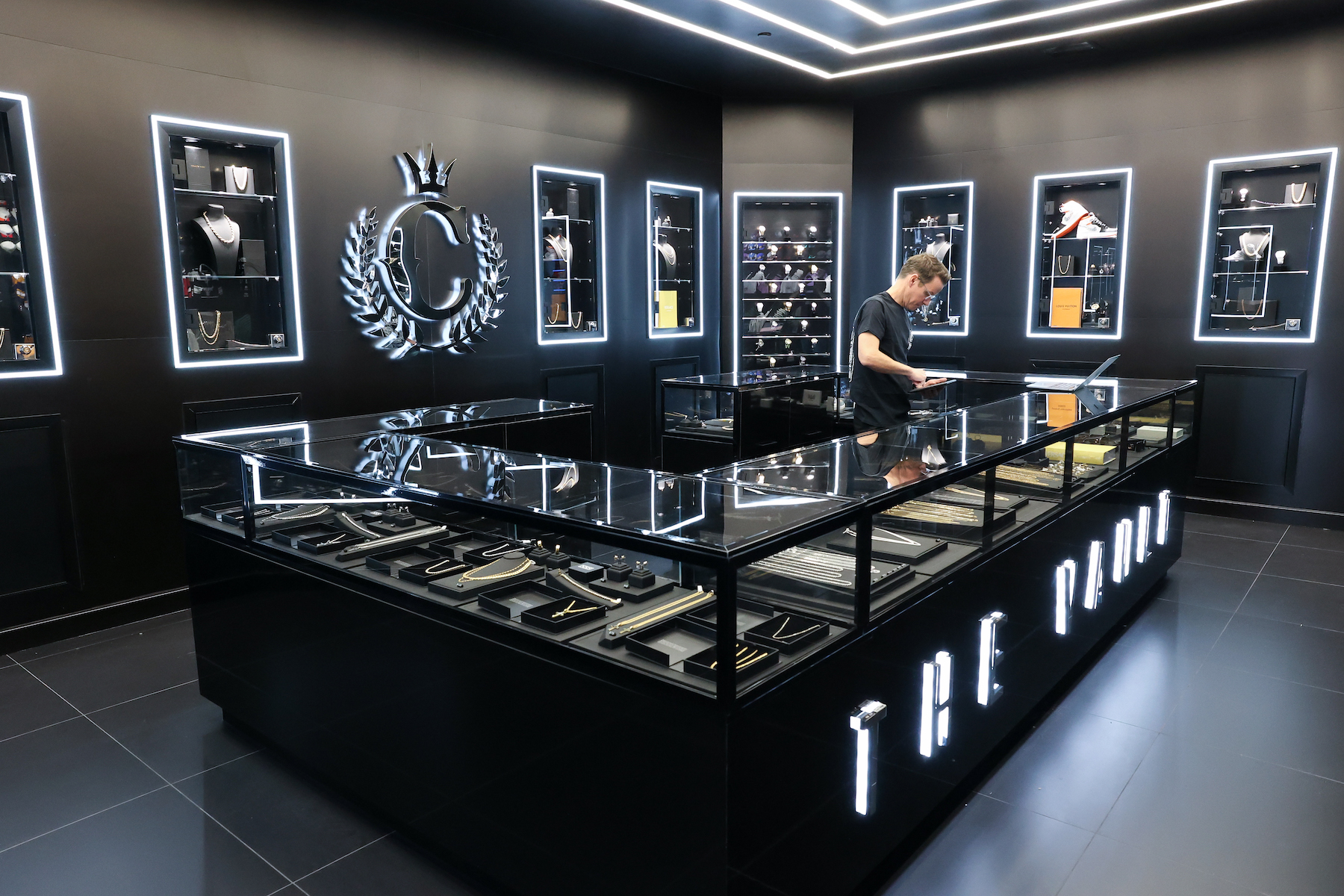
The store in Las Vegas, which took eight months to complete, is Culture Kings’ ninth, and, according to Eric Geisler, a Director at Shawmut’s office in Las Vegas, is “very similar” to the stores in Australia and New Zealand. It includes a half basketball court and a 75-ft-tall hat wall. Interactive games allow customers to play to win products. The 25,000-sf store, with 14,000 sf of retail space, is distinguished by a large staircase with LED-clad risers, a mirrored tunnel hallway that leads patrons to a “Secret Room” with exclusive merch (a feature that the chain introduced at its Auckland, New Zealand, store last year), a jumbotron and more than 50 LED screens that livestream the latest work produced by music and video artists.
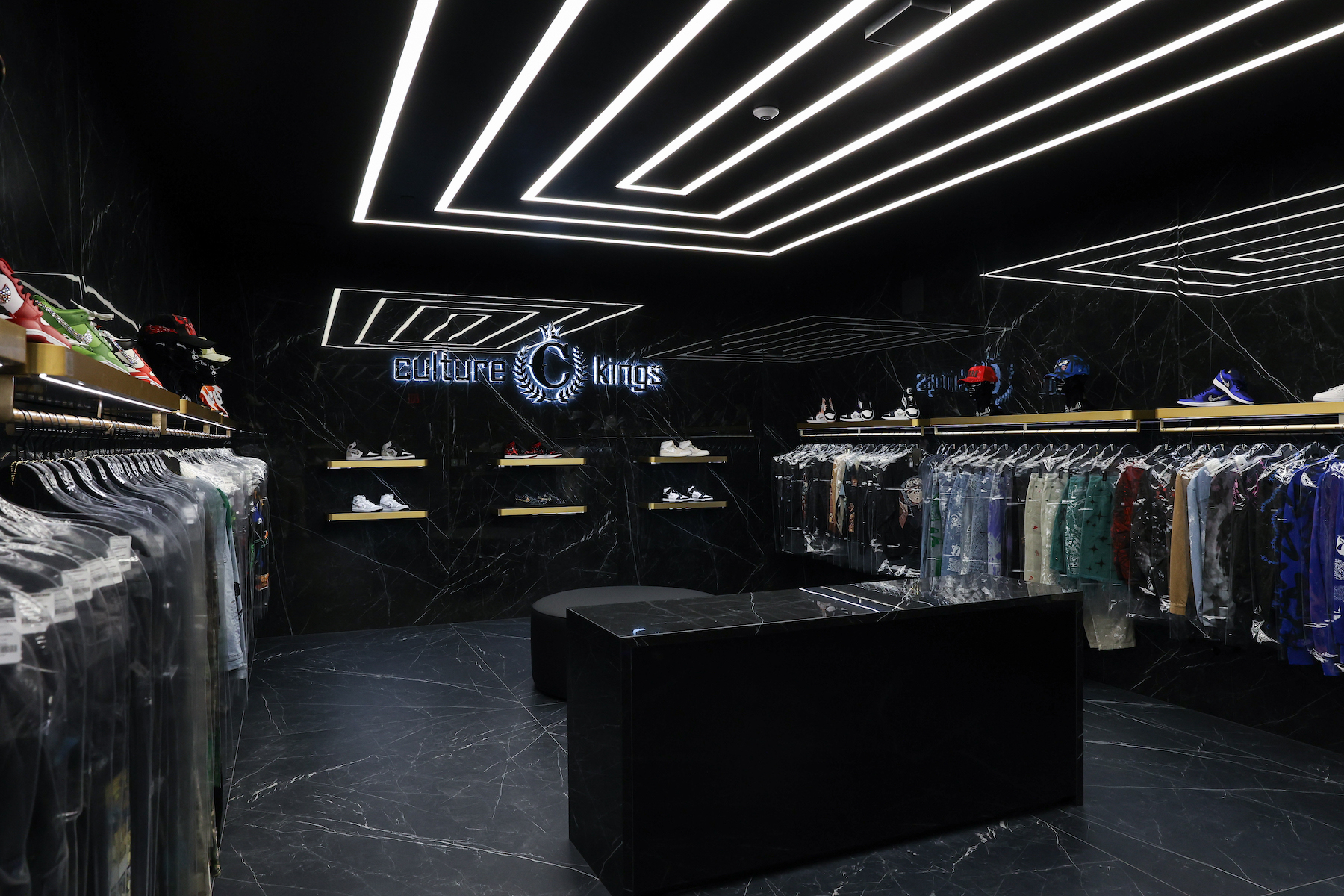
Geisler tells BD+C that his team traveled to Australia to tour Culture Kings’ stores there and to pick up on the “vibe” they send out to their customers. “The company wants to create an atmosphere that makes you want to hang out in the stores.”
To that end, the recording studio and bar are unique to the Vegas store, as is a footwear customization lounge. Throughout the store, black floor tile and metal work put the focus on the products and Culture Kings’ content. Geisler says the biggest challenge during construction was “figuring out where things went.”
A pivotal moment for growth?
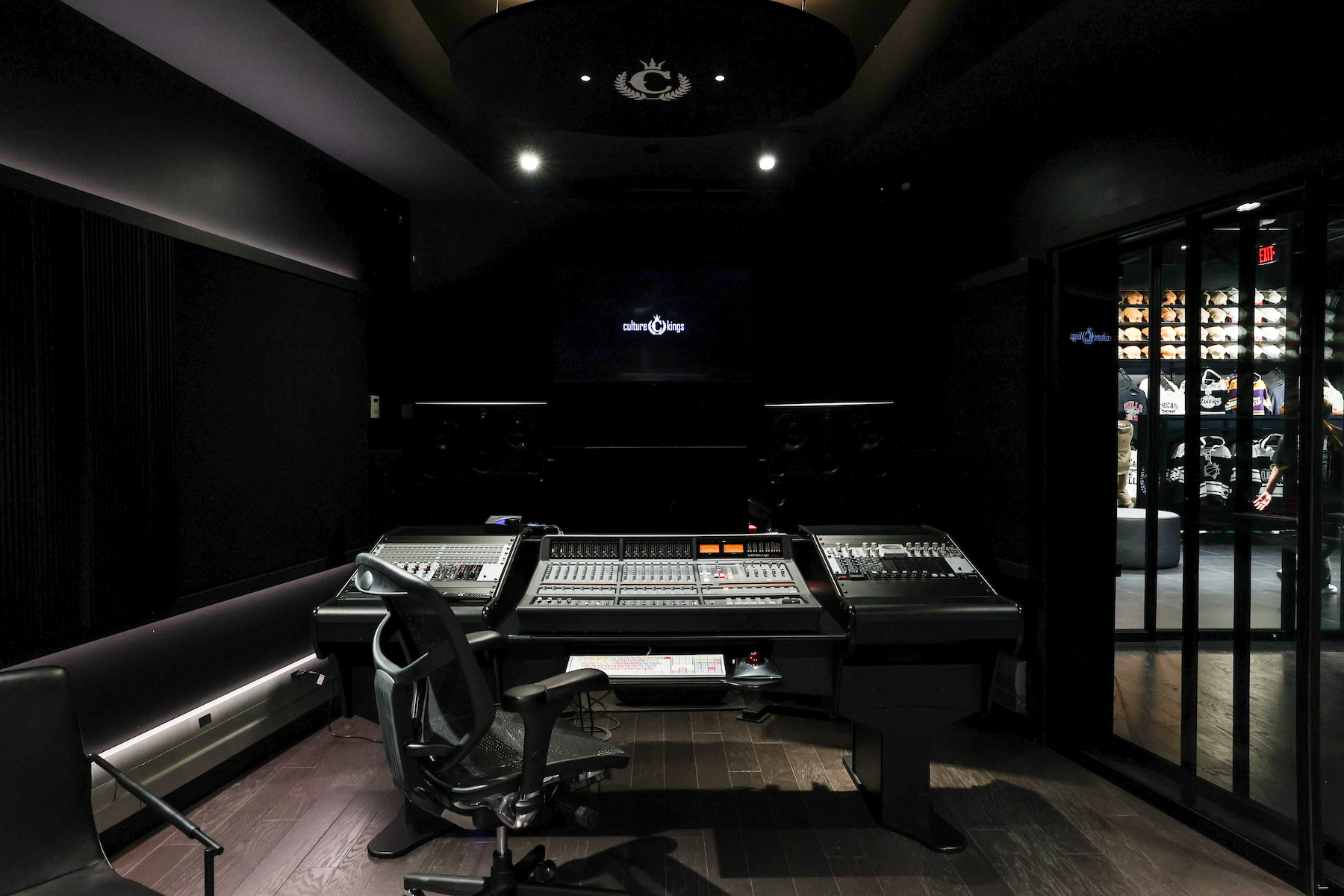
Simon Beard, Culture Kings’ cofounder and CEO, who launched the company in 2008, told the Las Vegas Review-Journal that the cost of the Las Vegas store (which he didn’t reveal) was more than the combined total for its stores in Australia.
The Vegas store is nestled in The Forum Shops at Caesars between a Fat Tuesday restaurant and an Urban Necessities retail outlet. Culture Kings—which currently generates most of its revenue online, according to the Review-Journal—hasn’t disclosed if it has expansion plans for North America. But it’s worth noting that the company was acquired last year by a.k.a. Brands Holding Corp., which has a reputation for being a retail accelerator.
“This is a pivotal moment for Culture Kings,” a.k.a. Brands’ CEO Jill Ramsey said in a statement about the Vegas store opening. “Consumers are interacting with brands on a different level, and Culture Kings is transforming traditional retail in an unforgettable, immersive experience that can’t be replicated. I’m excited to watch the brand take off in the U.S. and globally.”
Related Stories
| Sep 23, 2011
Under 40 Leadership Summit
Building Design+Construction’s Under 40 Leadership Summit takes place October 26-28, 2011 Hotel at the Monteleone in New Orleans. Discounted hotel rate deadline: October 2, 2011.
| May 17, 2011
Redesigning, redefining the grocery shopping experience
The traditional 40,000- to 60,000-sf grocery store is disappearing and much of the change is happening in the city. Urban infill sites and mixed-use projects offer grocers a rare opportunity to repackage themselves into smaller, more efficient, and more convenient retail outlets. And the AEC community will have a hand in developing how these facilities will look and operate.
| Apr 12, 2011
Retail complex enjoys prime Abu Dhabi location
The Galleria at Sowwah Square in Abu Dhabi will be built in a prime location within Sowwah Island that also includes a five-star Four Seasons Hotel, the healthcare facility Cleveland Clinic Abu Dhabi, and nearly two million sf of Class A office space.
| Mar 30, 2011
Big-box giants downsize, open smaller, urban stores
As U.S. chain retailers absorb the lessons of the Great Recession, many big-box chains have started to shrink average store footprints to reflect the growing importance of multi-channel shopping, adapt to urban settings, and recognize the need to optimize portfolios. Wal-Mart, Target, Best Buy, and the Gap, among others, all have small concepts in the works or are adapting existing ones. These smaller store formats should allow the retailers to maximize profitability and open more stores in closer proximity to each other.
| Mar 22, 2011
Mayor Bloomberg unveils plans for New York City’s largest new affordable housing complex since the ’70s
Plans for Hunter’s Point South, the largest new affordable housing complex to be built in New York City since the 1970s, include new residences for 5,000 families, with more than 900 in this first phase. A development team consisting of Phipps Houses, Related Companies, and Monadnock Construction has been selected to build the residential portion of the first phase of the Queens waterfront complex, which includes two mixed-use buildings comprising more than 900 housing units and roughly 20,000 square feet of new retail space.
| Feb 23, 2011
Unprecedented green building dispute could cost developer $122.3 Million
A massive 4.5 million-sf expansion of the Carousel Center shopping complex in Syracuse, N.Y., a project called Destiny USA, allegedly failed to incorporate green building components that developers had promised the federal government—including LEED certification. As a result, the project could lose its tax-exempt status, which reportedly saved developer The Pyramid Cos. $120 million, and the firm could be penalized $2.3 million by the IRS.


